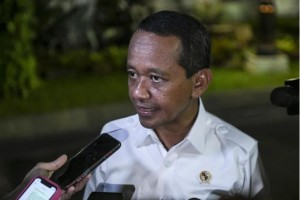Indonesia to Develop Policies for Hydrogen Production and Utilization
Key Ideas
- Minister Bahlil Lahadalia announces plans for hydrogen policy in Indonesia, focusing on market formation before regulations.
- The government considers providing incentives to manufacturers entering the hydrogen vehicle market in Indonesia.
- Hydrogen is seen as a key component in reducing fuel oil imports, with efforts to explore fossil fuel substitutes like B40, electric cars, and hydrogen.
The Minister of Energy and Mineral Resources in Indonesia, Bahlil Lahadalia, has revealed the government's intentions to introduce policies regarding the production and utilization of hydrogen within the country. As of now, the government has only put forth regulations for electric vehicles, leaving the domain of hydrogen vehicles unregulated. Minister Bahlil emphasized the importance of market potential for hydrogen-based vehicles before implementing necessary adjustments in government policy. He mentioned the possibility of offering incentives to manufacturers venturing into the hydrogen vehicle market, tailoring these incentives to meet both manufacturer needs and government capabilities.
Minister Bahlil highlighted the significance of hydrogen as part of the government's strategy to diminish the reliance on fuel oil imports, which currently stand at 1 million barrels per day. To address this challenge, the government is exploring various alternatives such as B40, electric vehicles, battery-powered cars, and the integration of hydrogen technology. This holistic approach aims to diversify the energy mix in Indonesia and reduce the nation's dependency on traditional fossil fuels. Minister Bahlil's statements underscore a positive outlook towards hydrogen as a crucial component in the country's energy transition efforts.
